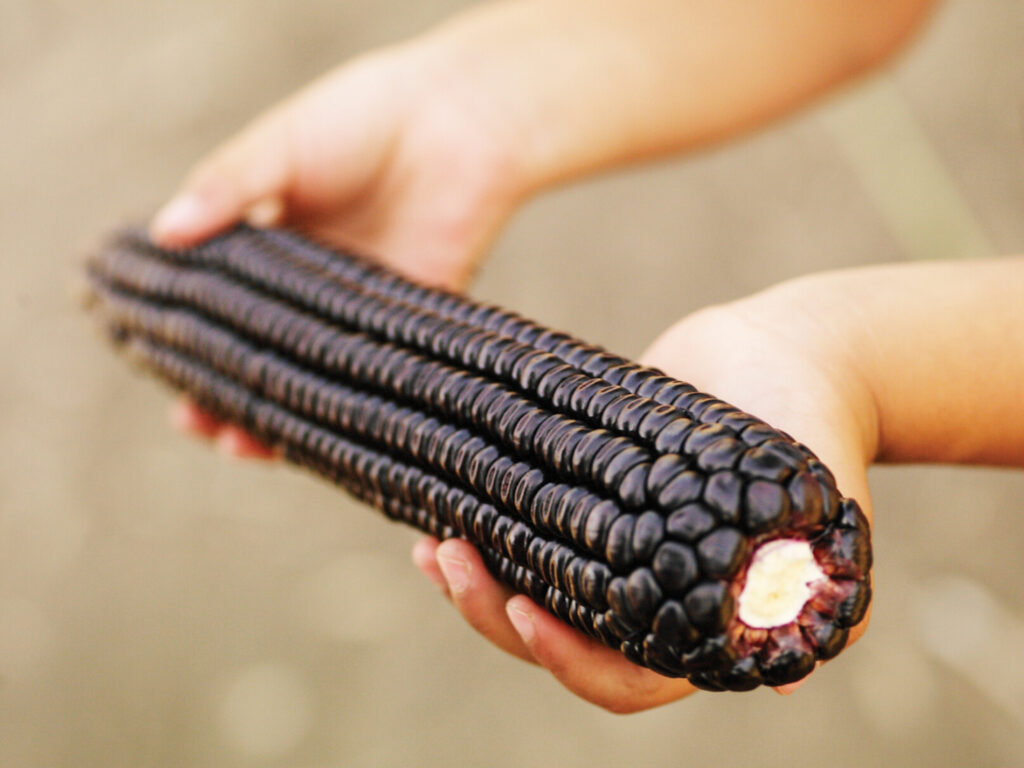Corn is a versatile and nutritious food that offers numerous health benefits. It is rich in fiber, vitamins, minerals, and antioxidants, making it a valuable addition to a balanced diet. Let’s explore the benefits of corn in detail:
1. High Fiber Content
Corn is a great source of dietary fiber, both soluble and insoluble. The soluble fiber in corn helps control cholesterol levels by forming a gel in the intestines. Insoluble fiber aids digestion and promotes regular bowel movements. Including corn in your diet can contribute to a healthy digestive system.

Credit: www.facebook.com
2. Rich in Vitamins and Minerals
Corn contains various essential vitamins and minerals, including vitamin C, vitamin B6, magnesium, and potassium. These nutrients support overall health and help maintain proper immune function, promote good vision, and keep your bones and muscles strong.
3. Antioxidant Properties
Corn is a fantastic source of antioxidant carotenoids, such as lutein and zeaxanthin. These compounds play a crucial role in promoting eye health and reducing the risk of age-related macular degeneration. Regular consumption of corn can help protect your vision and maintain healthy eyes.
4. Low-Glycemic Index Food
Due to its high fiber content and complex carbohydrates, corn has a low glycemic index. This means that it does not cause a rapid spike in blood sugar levels. Including corn in your meals can help regulate blood sugar and provide sustained energy throughout the day.
5. Versatile Culinary Ingredient
Corn is incredibly versatile in the kitchen. It can be enjoyed in various forms, such as boiled, grilled, roasted, or even popped as popcorn. You can add corn to salads, soups, stews, salsas, and numerous other dishes. It adds both flavor and nutritional value to your meals.
6. Suitable for Different Diets
Whether you follow a vegetarian, vegan, or gluten-free diet, corn can be an excellent addition to your meal plan. It is naturally gluten-free, making it safe for those with celiac disease or gluten intolerance. Corn also provides a good source of plant-based protein for vegetarians and vegans.
/bnn/media/media_files/49e224d8886f419ee76a80e266f75f8087482b9c142a201d660d211c5cd702df.jpg)
Credit: bnnbreaking.com
7. Great for Weight Management
Incorporating corn into a balanced diet can support weight management efforts. The fiber content in corn helps you feel full for longer, reducing the likelihood of overeating. Moreover, the combination of nutrients in corn can contribute to a healthy metabolism and provide essential energy for physical activities.
8. Convenient and Affordable
Corn is widely available and affordable, making it accessible to people with different budgets. Whether you buy fresh, frozen, or canned corn, you can enjoy its benefits without breaking the bank. Including corn in your regular grocery shopping can be a cost-effective way to incorporate a nutritious food into your diet.
Frequently Asked Questions For Benefits Of Corn: Nutritional Powerhouse
What Are The Benefits Of Eating Corn?
Eating corn benefits digestive health, provides fiber and essential nutrients for eye health and antioxidants.
Can We Eat Corn Daily?
Yes, you can eat corn daily, but in moderation. Corn is high in sugar and starch, which can elevate blood sugar levels. However, it provides fiber and beneficial nutrients, making it a healthy part of your diet when consumed in appropriate portions.
What Are The Pros And Cons Of Corn?
Corn has several benefits, including high fiber content which aids in digestion and may help control cholesterol. However, it is also high in starch and can potentially spike blood sugar levels. Eating corn in moderation as part of a healthy diet is recommended.
Additionally, the safety of genetically modified corn may be a concern.
Is Sweet Corn Good For You?
Sweet corn is good for you because it is rich in fiber, vitamins, and minerals. It also contains antioxidant carotenoids that promote eye health. Including moderate amounts of whole-grain corn in your diet can be a healthy addition. However, if you have diabetes, it’s important to watch your portion sizes due to its sugar and carbohydrate content.
Conclusion
Corn is a nutritious and versatile food with numerous health benefits. Rich in fiber, vitamins, minerals, and antioxidants, it can support digestive health, eye health, weight management, and overall well-being. Whether you enjoy fresh corn on the cob, popcorn, or include it in a variety of dishes, corn is a valuable addition to a balanced diet.







